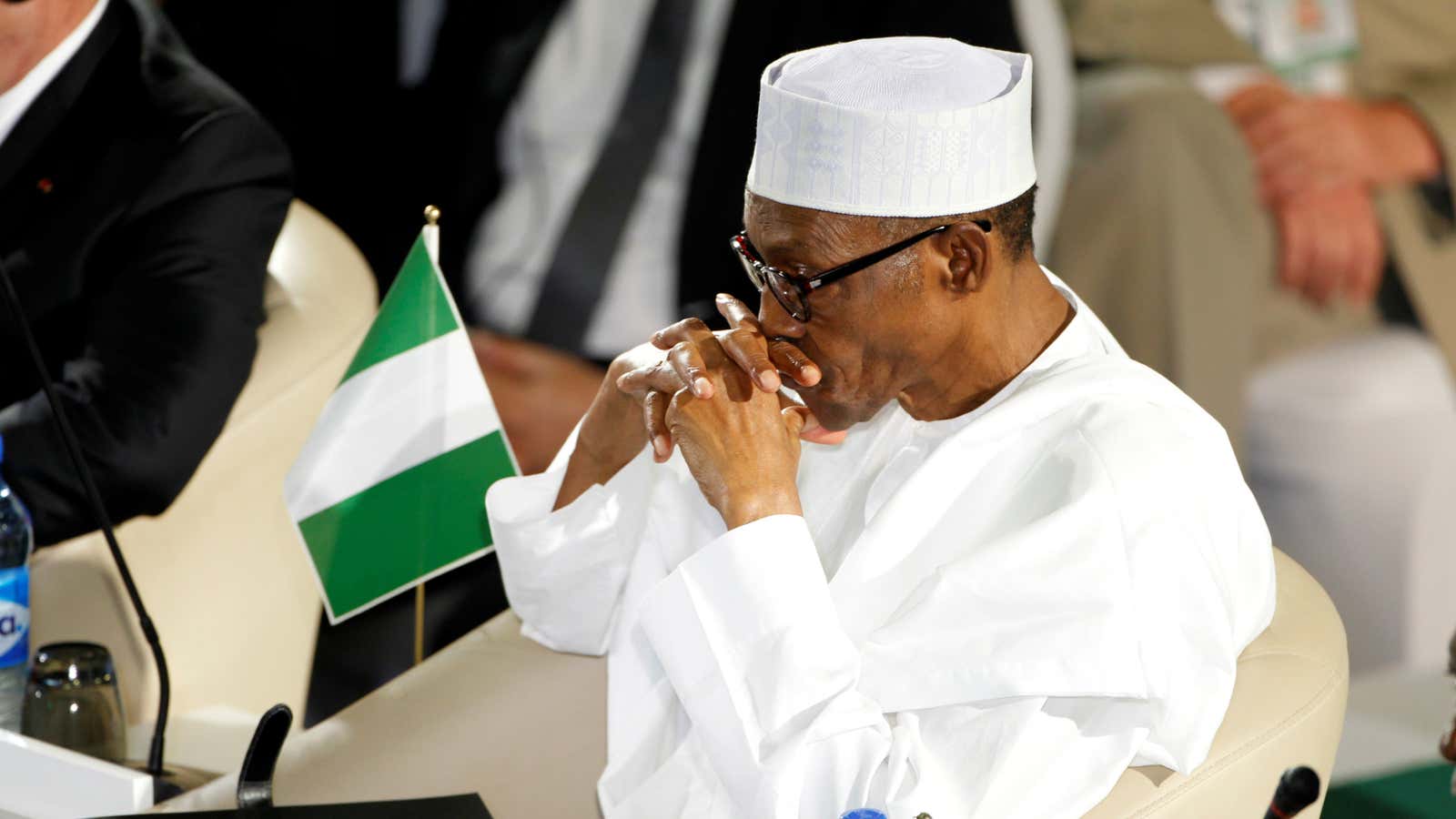After months of dithering, Nigeria’s Central Bank will allow the national currency’s value be determined by market forces after removing pegs which tied it to a fixed figure. The new policy will take effect from June 20 and will effectively devalue the naira.
The naira was officially pegged at around 199 naira to $1 but as the economy tanked and foreign reserves dried up, the Central Bank allowed few local businesses or individuals access to dollars at that rate. On the more commonly used parallel markets it traded around 350 naira to $1, which many believe is a fairer reflection of its value. It is a departure from the Central Bank’s former position as the sole dealer and means the naira will now be traded through the Central Bank’s selected primary dealers.
The policy change has been largely welcomed. It follows months of fuel shortages, record inflation and investor withdrawal—occasioned by a stubborn refusal to devalue the currency in the face of dipping revenues as a result of the sharp drop in the price of oil, the country’s main resource. Manji Cheto, senior vice president at London-based Teneo Intelligence says the Central Bank’s change of tack ”is a clear admission that its earlier policies had failed.”
The Central Bank’s refusal to devalue the naira reflected the position of Nigeria’s president, Muhammadu Buhari. He has said a devaluation was tantamount to ‘killing the naira’. Even though the Central Bank is supposed to operate independently of government the president’s stated position is believed to have influenced the Central Bank. The administration’s refusal to devalue, despite pleas from international and local economists, triggered investor caution in light of the country’s strict monetary policies.
The apex bank says it will periodically intervene in the market, stating conditions under which this could happen in its new guidelines on trading foreign exchange. But Cheto says the possibility of an intervention means the new policy can only be described as a “managed float.”
The Central Bank expects its new policy to close the gap in the current dual exchange rates possibly merging the pegged rate of the naira and its value on the parallel market where it has typically traded around 50% higher for most of the year. “We’re talking about an open, transparent two-way system,” Godwin Emefiele, Central Bank governor said at a press conference. “It’s intended we don’t have speculators and rent-seekers. I don’t expect that any other exchange rate will be recognized.”
